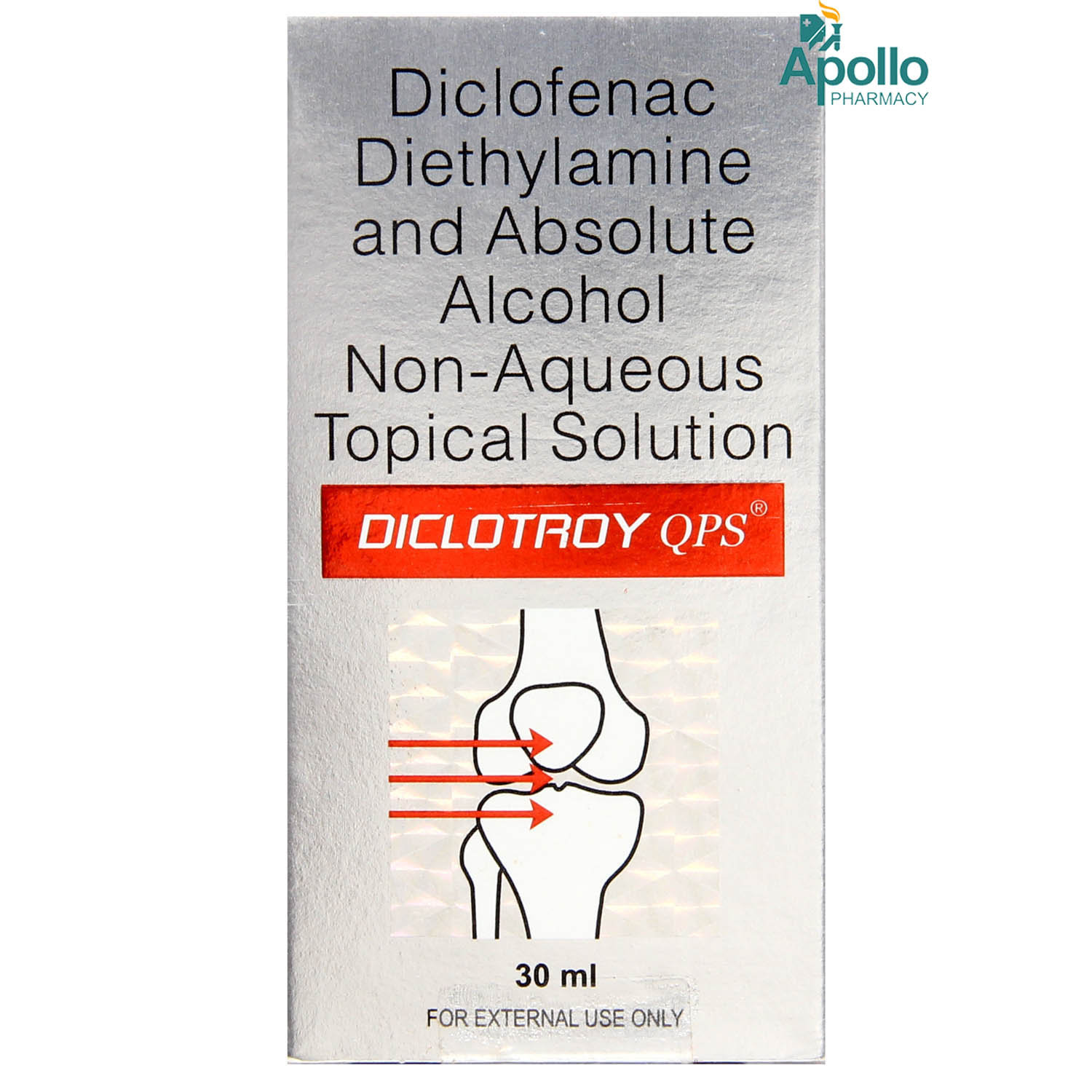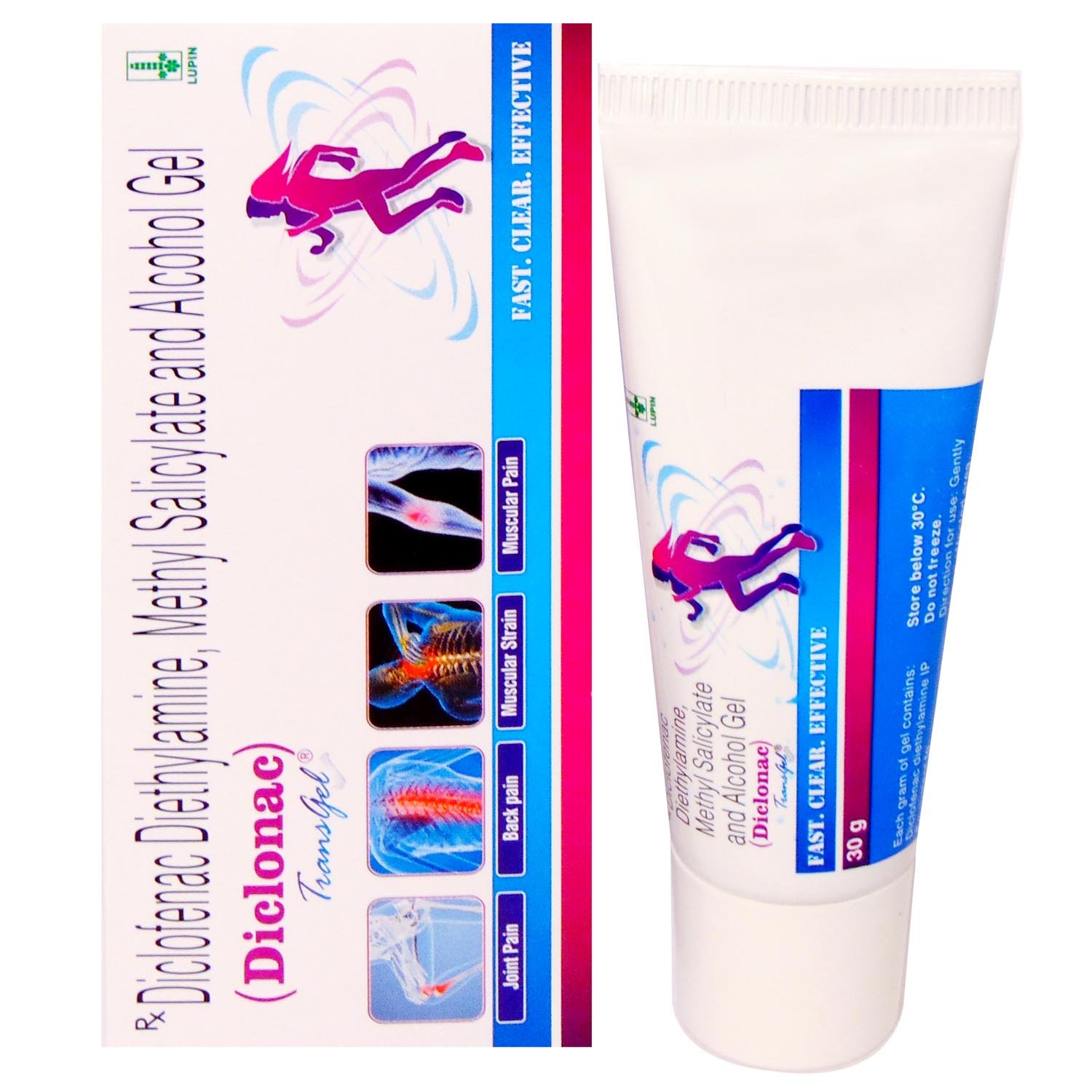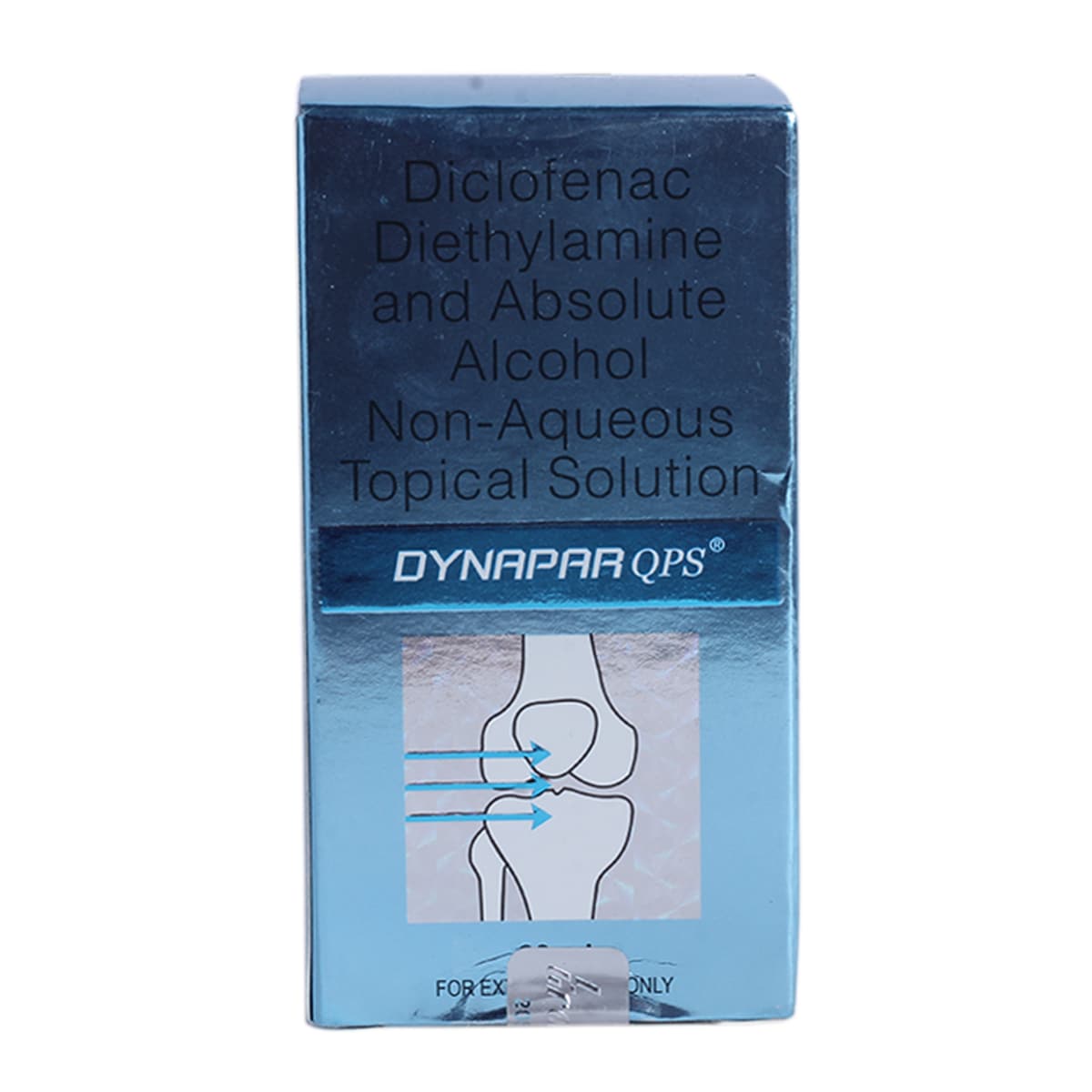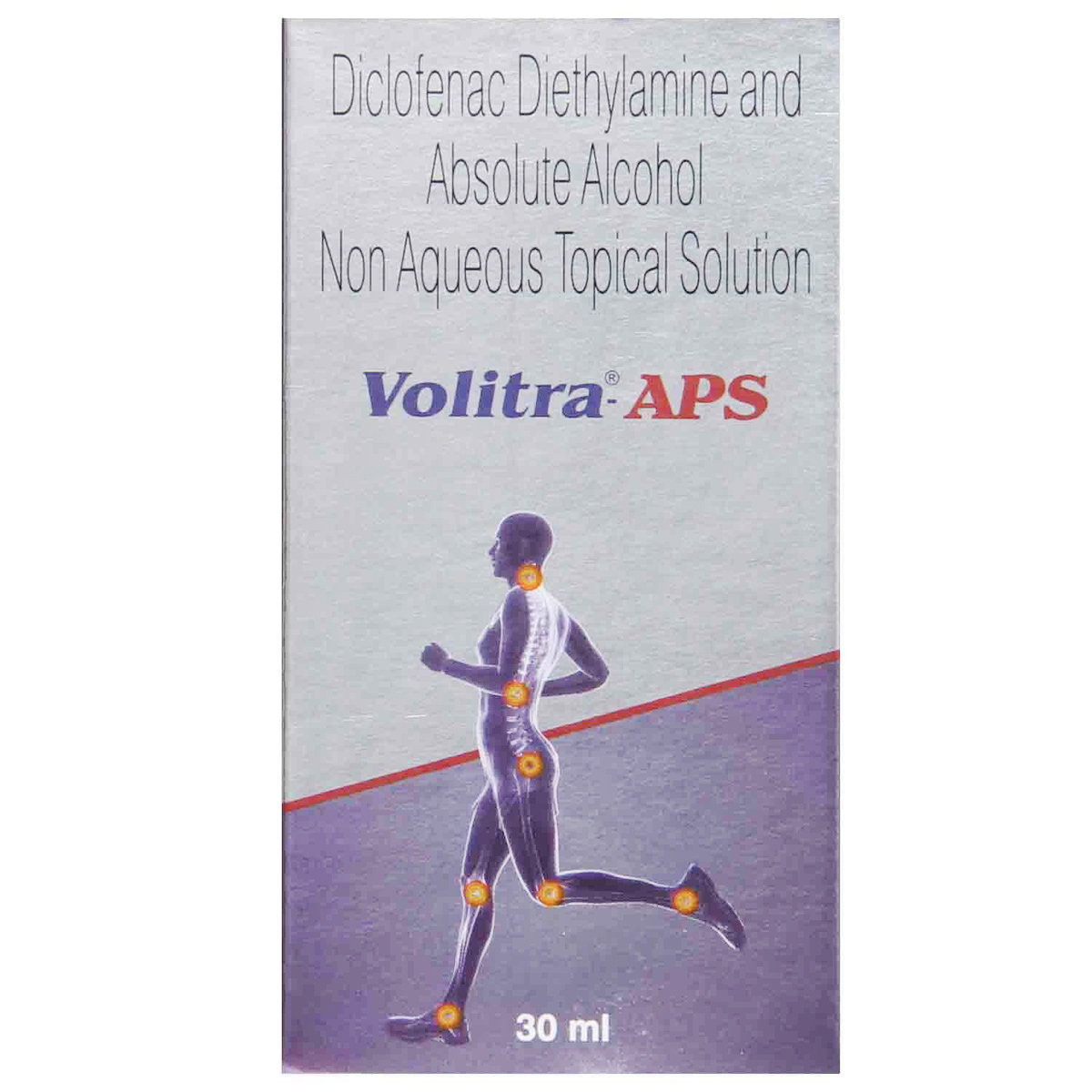Diclofenac+alcohol
About Diclofenac+alcohol
Alcohol+diclofenac is used to relieve pain and inflammation associated with musculoskeletal disorders, strain, sprain, arthritis, and low back pain. Musculoskeletal pain could occur due to arthritis, osteoporosis, fractures, dislocations, problems with the bone structure, or injury to the bones, joints, tendons, muscles, and ligaments.
Alcohol+diclofenac is a combination of two drugs, namely: Diclofenac and Alcohol. Diclofenac works by blocking the effect of chemical messengers that cause pain and inflammation at the injured or damaged site. Alcohol enhances the transdermal penetration of diclofenac. Together, Alcohol+diclofenac helps in providing relief from pain.
In some cases, Alcohol+diclofenac may cause common side-effects such as application site reactions like itching, irritation, redness, and burning sensation. Most of these side effects do not require medical attention and will resolve gradually over time. However, you are advised to talk to your doctor if you experience these side effects persistently.
Consult a doctor if you are pregnant or breastfeeding. Alcohol+diclofenac is not recommended for children below 14 years. Avoid or limit exposure to natural or artificial sunlight as Alcohol+diclofenac might make your skin sensitive to sunlight. Do not apply external heat or cover the treated skin with dressings after applying Alcohol+diclofenac.
Uses of Diclofenac+alcohol
Medicinal Benefits
Alcohol+diclofenac is a combination of two drugs, namely: Diclofenac and Alcohol. Alcohol+diclofenac is used to relieve pain and inflammation associated with musculoskeletal disorders, strain, sprain, arthritis, and low back pain. Diclofenac works by blocking the effect of a chemical messenger known as cyclo-oxygenase (COX) enzymes that make other chemical prostaglandins. By blocking the effect of COX enzymes, lesser prostaglandins are produced, which reduces mild to moderate pain and inflammation at the injured or damaged site. Alcohol enhances the transdermal penetration of diclofenac. Together, Alcohol+diclofenac helps in providing relief from pain and inflammation.
Directions for Use
Storage
Side Effects of Diclofenac+alcohol
- Itching
- Irritation
- Redness
- Burning sensation
- Nausea
- Vomiting
Drug Warnings
Do not use Alcohol+diclofenac if you are allergic to any of its components; if you experience asthma, urticaria, or allergy after taking NSAIDs. Inform your doctor if you have peptic ulcers, inflammatory bowel disease, bleeding problems, hepatic or renal insufficiency. Consult a doctor if you are pregnant or breastfeeding. Alcohol+diclofenac is not recommended for children below 14 years. Inform your doctor if you are taking any NSAID/pain killers orally. Stop taking Alcohol+diclofenac and consult your doctor immediately if you have stomach pain or signs of bleeding in the intestine or stomach, such as blood in stools.
Drug Interactions
Drug-Drug Interactions: No interactions found/established.
Drug-Food Interactions: No interactions found/established.
Drug-Disease Interactions: No interactions found/established.
Drug-Drug Interactions Checker List:
Safety Advice

Alcohol
cautionIt is unknown whether alcohol interacts with Alcohol+diclofenac. Please consult a doctor.

Pregnancy
cautionPlease consult your doctor if you have any concerns regarding this. Your doctor will recommend only if the benefits outweigh the risks.

Breast Feeding
cautionIf you are breastfeeding, avoid applying Alcohol+diclofenac on the breast. Consult your doctor before taking Alcohol+diclofenac; your doctor will decide whether Alcohol+diclofenac can be taken by breastfeeding mothers or not.

Driving
cautionIt is unknown if Alcohol+diclofenac affects your ability to drive. Drive or operate machinery only if you are alert.

Liver
cautionPlease consult your doctor if you have a liver impairment or any concerns regarding the usage of Alcohol+diclofenac in patients with liver problems.

Kidney
cautionPlease consult your doctor if you have kidney impairment or any concerns regarding the usage of Alcohol+diclofenac in patients with kidney problems.

Children
unsafeAlcohol+diclofenac is not recommended for children below 14 years as the safety and effectiveness have not been established.
Habit Forming
Diet & Lifestyle Advise
- Physical activity helps strengthen muscles and relieves joint stiffness. Gentle activities like 20-30minutes of walking or swimming would be helpful.
- Performing yoga may also help in improving joint flexibility and pain management.
- Maintain a healthy weight by performing regular low-strain exercises and eating healthy food.
- Get adequate sleep, as resting the muscles can help in reducing inflammation and swelling.
- De-stress yourself by meditating, reading books, taking a warm bubble bath, or listening to soothing music.
- Acupuncture, massage, and physical therapy may also be helpful.
- Eat food rich in antioxidants such as berries, spinach, kidney beans, dark chocolate, etc.
- Foods containing flavonoids help in reducing inflammation. These include soy, berries, broccoli, grapes, and green tea.
- Avoid smoking and alcohol consumption.
Special Advise
- Always keep the nozzle in the upright position.
- Do not apply Alcohol+diclofenac on cuts, wounds, broken skin, infection, or rashes.
- Avoid contact of Alcohol+diclofenac with clothes or other objects for 8-10minutes after application.
- If Alcohol+diclofenac comes in contact with eyes, mouth, or nose, wash with water immediately. Consult a doctor if irritation persists.
Patients Concern
Disease/Condition Glossary
Musculoskeletal pain: Musculoskeletal pain affects the bones, muscles, ligaments, tendons, and nerves. It can be acute or chronic, can be localized or widespread. The pain can be mild or severe enough to interfere with your daily routine. Musculoskeletal pain could occur due to arthritis, osteoporosis, fractures, dislocations, problems with the bone structure, or injury to the bones, joints, tendons, muscles, and ligaments. Musculoskeletal pain symptoms include stiffness, swelling, redness, weakness, muscle spasms or twitching, trouble moving the affected area, and soreness.
Osteoarthritis: It is a joint disease in which the two ends of the joints come together due to the breakdown of a protective covering called cartilage. Due to the absence of this protective covering, the joints rub against each other, leading to pain and stiffness. Symptoms include pain, stiffness, inflammation, and tenderness.
FAQs
Alcohol+diclofenac contains Diclofenac and Alcohol. Diclofenac works by blocking chemical messengers that cause pain and inflammation at the injured or damaged site. Alcohol enhances the transdermal penetration of diclofenac. Together, Alcohol+diclofenac helps in providing relief from pain.
Alcohol+diclofenac is used to reduce and relieve pain and inflammation associated with osteoarthritis. It is a joint disease in which the two ends of the joints come together due to the breakdown of a protective covering called cartilage.
Avoid concomitant use of Alcohol+diclofenac with other topical products such as cosmetics, sunscreens, lotions, moisturisers, insect repellent creams, and other gels.
Do not apply external heat or cover the treated skin with dressings after applying Alcohol+diclofenac. Avoid wearing clothes or gloves for at least 10 minutes after applying Alcohol+diclofenac.
Do not apply Alcohol+diclofenac on wounds, skin injuries, irritated skin, skin abrasions, rashes, and infections.
Avoid taking a bath or shower for at least 30 minutes after applying Alcohol+diclofenac.
Diclofenac might make your skin sensitive to sunlight, tanning beds, and ultraviolet light. Therefore, avoid or limit exposure to natural or artificial sunlight. Make sure to cover the treated skin whilst going outside.










